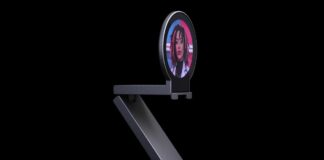Anthropic has launched its latest AI model, Claude Opus 4.5, significantly undercutting competitor pricing while demonstrating state-of-the-art capabilities, particularly in software engineering. This release intensifies competition with OpenAI and Google, signaling a rapid evolution in AI performance and accessibility. The move is strategically timed as rivals also roll out advanced models, pushing the entire industry forward at an unprecedented pace.
AI Outperforms Humans in Key Engineering Tests
The new model has surpassed human performance on Anthropic’s most rigorous internal engineering assessments. In fact, Opus 4.5 achieved a higher score than any job candidate in the company’s history, highlighting AI’s accelerating ability to tackle complex, white-collar tasks. This isn’t simply a marginal improvement; it raises critical questions about the future of professions traditionally held by human experts.
Dramatic Price Cuts Expand AI Access
Anthropic has slashed pricing by roughly two-thirds. Opus 4.5 costs $5 per million input tokens and $25 per million output tokens, down from $15 and $75 for the previous model. This reduction makes advanced AI accessible to a wider range of developers and businesses, forcing competitors to respond with similar pricing adjustments. The goal, according to Anthropic’s head of developer relations, Alex Albert, is to “enable Claude to be better at helping you do the things that you don’t necessarily want to do in your job.”
Performance Benchmarks: Opus 4.5 Leads the Field
Independent testing shows Opus 4.5 outperforming OpenAI’s GPT-5.1-Codex-Max and Google’s Gemini 3 Pro on the SWE-bench Verified benchmark—a key measure of real-world software engineering tasks. The model achieved 80.9% accuracy, exceeding competitors by several percentage points. But beyond raw numbers, developers report that Opus 4.5 demonstrates improved judgment and intuition in diverse situations. The model now “just gets it,” according to Albert, exhibiting a qualitative leap in reasoning capabilities.
AI Agents and Self-Improvement: A New Level of Automation
Early adopters are using Opus 4.5 to create “self-improving agents”—AI systems that refine their own performance through iterative learning. Rakuten, for example, found that its AI agents achieved peak performance in just four iterations, while other models struggled to match that quality even after ten attempts. This capability extends beyond coding, with significant improvements reported in professional document creation, spreadsheet analysis, and presentation design.
New Features Enhance Productivity and Efficiency
Anthropic has also introduced several product updates:
- Infinite Chats: Eliminates context window limitations by automatically summarizing long conversations.
- Claude for Excel: Supports pivot tables, charts, and file uploads for advanced data analysis.
- Programmatic Tool Calling: Allows Claude to execute code and directly invoke functions.
- Chrome Extension: Now available to all Max users for seamless integration with browser workflows.
These enhancements are designed to maximize efficiency and productivity for enterprise users.
Market Dynamics and Future Implications
Anthropic’s revenue has doubled in the first quarter of 2025, reaching $2 billion annually. The number of high-spending customers has increased eightfold year-over-year, indicating growing demand for its AI services. However, profitability remains a challenge as AI labs continue to invest heavily in infrastructure and talent.
The competitive landscape is heating up, with OpenAI and Google releasing their own advanced models at a rapid pace. The race to develop the most capable AI is driving innovation but also raises concerns about the potential impact on professional work. As AI performance on technical tasks nears—and sometimes exceeds—human expert levels, the technology’s influence on the job market becomes increasingly real.
“I think it’s a really important signal to pay attention to,” says Anthropic’s Alex Albert, underscoring the significance of these developments.
The rapid progress of AI is no longer a distant possibility but a present reality, reshaping industries and forcing both businesses and workers to adapt.
























